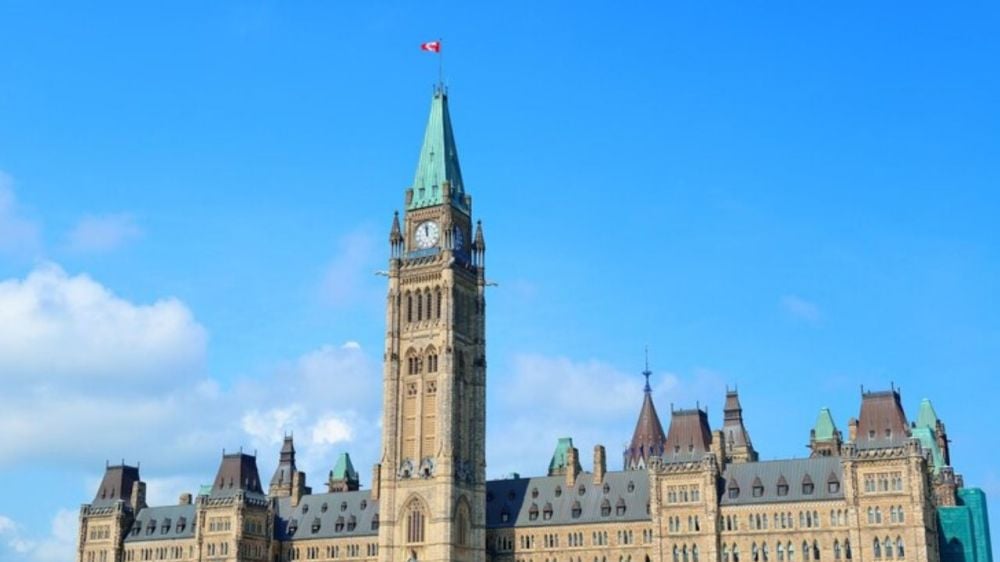
Canada's 'Immigration Refugee and Citizenship Canada' department is going to bring a new immigration plan for 2025 to 2027. This plan can be released any time before November 1. It has made several important changes regarding people coming to Canada.
Previously, Canada's immigration plan only included information about people who wanted to settle in Canada permanently. But people coming to the country for the first time will also be included in this.
People who come to the country for a short period of time are called temporary residents. This includes people who come to Canada to work, study or travel. Canada releases its immigration status plan every year. The plan outlines how many people will be allowed to come to Canada over the next three years. Canada's planning also affects its population, social system, tax system, housing shortage, health services and job market.
Canada wants to reduce temporary residents
Canada's Immigration Minister Mark Miller said including temporary residents in the plan is a major change. Approximately 2.5 million temporary residents will come to Canada in 2023, which is 6.2% of the country's population. Our goal is to reduce that number to 5% over the next three years, Miller said. But it has not yet been decided how many people will be allowed to come to Canada in the next three years. But some old advertisements of the government can tell what is going to happen in the new scheme.
Limited number of study permits
IRCC announced in January that it was limiting the number of study permits. The government had decided to approve only 6,06,000 student visa applications in 2023. Of these, about 3,60,000 applications were expected to be approved. This is 35% less than in 2022. This decision was taken when Mark Miller himself was against reducing the number of international students. Then in September this year, the government further reduced the number of student visas for 2025.
The government aims to approve only 4,37,000 study permits in 2025. Earlier Master and PhD students were kept out of this limit but now the same rule will apply to them also. 42% of all people coming to Canada in 2023 came on study permits. In such a situation, it is expected that in the new immigration plan, a specific number will be decided as to who will be given student visa. In such a situation, it is going to have a direct impact on Indians.
Amendment in Open Work Permit
The Canadian government is also going to make changes in the open work permit rules. These include Post Graduation Work Permit and Spouse Open Work Permit. The government is now making the language test mandatory for those applying for PGWP. The government aims to reduce the number of PGWPs to 1,75,000 in the next three years. The government wants to change the rules of SOWP to reduce its number to 50,000.
Now only those who have done specific courses in Canada or have experience in the required fields will have the opportunity to apply for SOWP. But those whose spouses are highly skilled will continue to receive SOWP. The Canadian government wants to reduce the number of open work permits of all types to 325,000 over the next three years. In such a situation, the Indians who earlier used to go to Canada to study and their spouses got the opportunity to work there, will no longer be able to do so.
Tightening the Temporary Foreign Worker Program
Canada's Employment Minister Randy Boissonnault has announced changes to the Temporary Foreign Worker Program. According to the new rules, now no company can hire more than 10% of its total workforce under TFWP. Apart from this, people coming under TFWP for low wage jobs will now be able to work for only one year instead of two years.
In areas where the unemployment rate is above 6%, new appointments will not be allowed under TFWP. Randy Boissonnault says the TFWP should be used as a last resort. He appealed to the companies not to depend too much on TFWP. In such a situation, it is becoming difficult for those Indians who used to go to Canada for work under TFWP.
Targeting permanent residents
In its 2024-2026 immigration plan, Canada has set a target of 5,00,000 people per year by 2025 and 2026. 60% of them are expected to come to Canada through employment or business. But Mark Miller has indicated that the government may make some changes in this. This change will come as people in Canada face housing shortages, pressure on health care and changing mindsets regarding immigration.
 look news india
look news india